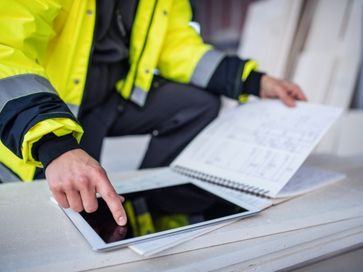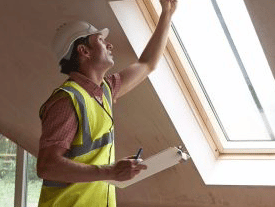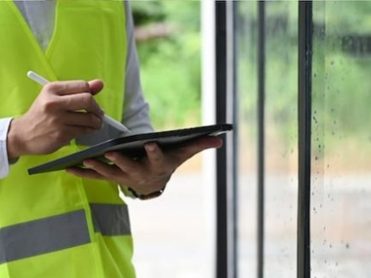During the inspection of your home, the inspector will take a thorough look at the house and analyse it. Regardless of the type of house being inspected, there are a number of inspection points that will always be looked at. These parts are explained in more detail below.
The inspection points
Whether you are having a newly built home inspected, an older home, before or after purchase, the following points will be inspected during an inspection:
- Construction and foundation: Not only the foundation, but also the general condition of the house’s structure will be inspected. This includes checking for cracks in walls, floors or ceilings, subsidence of the foundation and structural stability. Any problems with the structure can have a significant impact on the safety and stability of the property.
- Roof: Roof tiles and roofing materials can cause leaks. Therefore, these items are thoroughly examined and possible gutters and downspouts are also examined. A proper roof inspection is crucial to prevent water infiltration and subsequent damage.
- Gable and masonry: Any cracks, loose bricks or damage to the facade are documented. The inspection also focuses on any moisture problems, such as rainwater seepage.
- Windows and doors: To prevent heat loss or possible moisture problems, windows and doors are looked at and assessed for workmanship and sealing. Poorly functioning windows and doors can also contribute to security problems.
- Electrical systems: The electrical system is checked for overloads, outdated wiring, loose connections and unsafe electrical practices. This is important to prevent electrical fires and malfunctions.
- Sanitary and plumbing: The plumbing system is inspected for leaks, blockages, pressure problems and general condition. Water leaks can lead to water damage and mould, so it is important to detect any problems early.
- Heating, ventilation and air conditioning (HVAC): HVAC systems are checked to see if they are working correctly, efficient and in good condition. A malfunctioning HVAC system can lead to inconvenience and high energy costs.
- Isolation and ventilation: The inspector assesses the quality and amount of insulation in walls, ceilings and floors. Ventilation of the house is also looked at to ensure a healthy indoor environment and prevent moisture problems.
- Ceilings, floors and walls: Any cracks, moisture problems, and defects in ceilings, floors and walls are documented. These may indicate structural problems or other issues.
- Pests and mold: The inspector looks for signs of pest infestations, such as termites, cockroaches or mice. It also looks for mold growth, especially in damp areas such as basements and bathrooms. Pests and mold can cause health problems and damage to the property.
- Safety devices: The presence and operation of smoke detectors, carbon monoxide detectors and fire extinguishers are checked to ensure that the property complies with safety regulations.
- General safety: The inspector watches for possible safety hazards, such as loose banisters, slippery surfaces, unsafe stairs, and other dangerous situations that could cause injury.
Additional inspection points
Do you suspect faulty foundations in certain rooms? Would you like to know more about how to make the house more sustainable? Or do you want to remodel the property? This too can be included during a technical inspection. That is why it is important to discuss your expectations and wishes with the inspector beforehand. Even if you are about to buy a newly built house, a technical inspection is important. This sometimes involves other inspection points.
A technical inspection is designed to give potential buyers or owners of a property a thorough understanding of the condition of the property and to identify any problems before they become larger and more costly to repair. The detailed report resulting from the inspection can serve as a guide for repairs and improvements to the property. Read more about a technical inspection with English report.
Technical inspection: everything you need to know
What is a technical inspection?
What does a technical inspection cost?
💡 Need help with finding a suitable technical inspector?
We provide you with free help and all the advice you need to find the best inspector.



